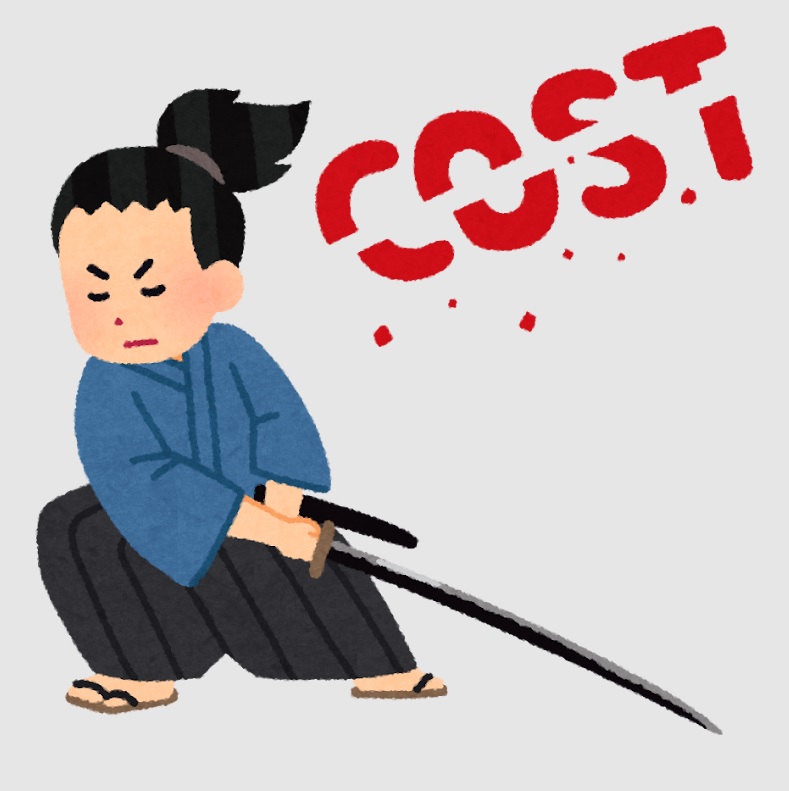管理人オススメコンテンツはこちら
「投資成功の鍵は支出削減にあり|浪費を断ち切り、資産形成の第一歩を!」
〜前回のつづき〜
●投資で重要な事(つづき)
b)支出を減らす
ⅰ)固定費を下げる
余剰資金を増やすのに大切な事です。
普通は収入を増やす所から行けたらいいんですけど
今までのお話しの中では
支出を減らす=固定費を下げよう
という所からお話ししてるんですよね。
いきなり
「収入を増やしましょう!」
「事業をやりましょう!」
「副業しましょう!」
と言っても難しくて
拒否反応が出ちゃうのではないでしようか?
だから覚えていけば出来るんですけど
最初からは難しい。
だから支出を減らすところから
ずっとお話ししてた訳ですね。
よく言ってる固定費。
「格安SIMに変えよう!」
とか
「無駄な保険を解約しよう!」
とか
住宅に関しても
「入居・退去・引っ越し費用も合わせて抑えよう!」
とか
「ボッタクリな家なんか買っちゃダメ!」
とか。
持ち家の場合は
心が豊かになる浪費という側面も有るので
一概には言えないんですけど
数字のところだけで言ったら損してしまうし
お金持ちは遠のいちゃうという事ですね。
車も一緒。
電気・水道・ガスなんかも
言ってきましたよね?
固定費をとにかく下げようという事です。
ⅱ)浪費を減らす
あとはやはり浪費ですね。
この辺は心の豊かさと付き合いながら
バランスを考えていったらいいんですけど。
そういう事をずっとお話ししてきてますよね?
ⅲ)節税する
それから税金ですね。
節税しようと思ったら
自分を確定申告に関係のある人にさせる。
サラリーマンというのは
税金をものすごく取られています。
3割ぐらいは大体税金取られてるんですよ。
それでも会社が負担してくれてるんですよ。
会社が負担してくれている分や
社会保険料と合わせたら
給料の半分くらい
税金を取られてるんですよ。
〜〜〜つづく〜〜〜
Special Thanks college president Ryo.
●おまけ
≪≪Chat-GPTくんによる要約→perplexityちゃんによる文章まとめ≫≫
投資において重要なポイントは、支出を減らすことです。特に固定費の削減、浪費の抑制、そして節税が鍵となります。
まず、固定費を下げることが余剰資金を増やすために不可欠です。具体的には、格安SIMへの変更や不要な保険の解約、住宅関連の費用を抑えることが挙げられます。入居や退去、引っ越しにかかる費用を見直し、適切な住宅購入を心掛けることで、無駄な出費を削減できます。また、車や光熱費の見直しも重要です。
次に、浪費を減らすことも大切です。心の豊かさとのバランスを考えながら、無駄遣いを控える努力が必要です。
最後に、節税対策として確定申告に関与することが推奨されます。サラリーマンは給与の約3割が税金として徴収されており、会社負担分や社会保険料を含めると実質的に半分近くが税金になります。これらの方法を通じて支出を減少させ、投資に回せる資金を増やすことが重要です。
Citations:
[1] https://hikkoshizamurai.jp/soldi/articles/fixed_cost_savings/
[2] https://www.iyobank.co.jp/sp/iyomemo/entry/20240523.html
[3] https://www.cr.mufg.jp/mycard/beginner/23052/index.html
[4] https://sure-i.co.jp/journal/household/entry-523.html
[5] https://www.navinavi-hoken.com/articles/saving
[6] https://enechange.jp/articles/saving-fixed-cost
[7] https://fixedcost.moneyforward.com
[8] https://canon.jp/biz/trend/bpo-09
≪≪Chat-GPTくんによる英訳≫≫
Continuation from the previous section:
【Important Aspects of Investing (continued)】
b) Reducing Expenses
i) Lowering Fixed Costs
It’s important to reduce fixed costs in order to increase surplus funds. Ideally, it would be great to start by increasing income, but up until now, we’ve been discussing starting with lowering expenses—specifically, reducing fixed costs.
Jumping straight into suggestions like “Let’s increase your income!”, “Start a business!”, or “Get a side job!” might be overwhelming and cause resistance. While these things are doable once you learn them, they’re difficult to tackle from the very beginning.
That’s why we’ve been focusing on reducing expenses first.
We often talk about fixed costs, such as switching to a low-cost SIM, canceling unnecessary insurance, or reducing housing expenses like moving-in, moving-out, and relocation fees. Also, don’t buy overpriced houses.
While owning a home can bring emotional satisfaction, from a financial perspective, it often leads to losses and moves you further away from becoming wealthy. The same goes for owning a car.
We’ve also discussed utilities like electricity, water, and gas—lowering fixed costs as much as possible is key.
ii) Reducing Wasteful Spending
Next is reducing wasteful spending. This requires finding a balance with maintaining emotional richness in life. It’s something we’ve been discussing consistently.
iii) Tax Savings
Then there’s taxes. If you want to save on taxes, you need to put yourself in a position where you’re involved in tax filing. Salaried workers are heavily taxed—roughly 30% of their income goes to taxes. And on top of that, companies cover part of the burden. When you include the portion companies cover and social insurance premiums, nearly half of your salary is taken in taxes.
Special Thanks OpenAI and Perplexity AI, Inc


